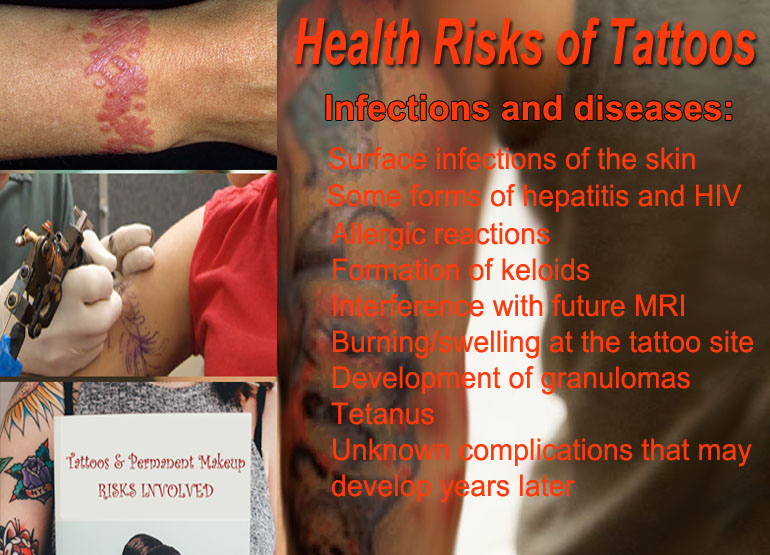Health Pages
Temporary Tattoos & Henna/Mehndi
Temporary Tattoos & Henna/Mehndi
Henna, a coloring made from a plant, is approved only for use as a hair dye, not for direct application to the skin, as in the body-decorating process known as mehndi. This unapproved use of a color additive makes these products adulterated and therefore illegal. An import alert is in effect for henna intended for use on the skin. FDA has received reports of injuries to the skin from products marketed as henna.
Since henna typically produces a brown, orange-brown, or reddish-brown tint, other ingredients must be added to produce other colors, such as those marketed as "black henna" and "blue henna." So-called "black henna" may contain the "coal tar" color p-phenylenediamine, also known as PPD. This ingredient may cause allergic reactions in some individuals. The only legal use of PPD in cosmetics is as a hair dye. It is not approved for direct application to the skin.
Even brown shades of products marketed as henna may contain other ingredients intended to make them darker or make the stain last longer. In addition to color additives, these skin-decorating products may contain other ingredients, such as solvents.
Cosmetics including temporary skin-staining products that are sold on a retail basis to consumers must have their ingredients listed on the label. Without such an ingredient declaration, they are considered misbranded and are illegal in most countries. So, read labels and make sure you know what's in a temporary tattoo or henna/mehndi product before you use it on your skin.
Did You Know?
Reporting Adverse Reactions
FDA urges consumers and healthcare providers to report adverse reactions from tattoos, permanent makeup, and temporary tattoos, as well as problems with tattoo removal.
USA: Consumers and healthcare providers can report problems to MedWatch, FDA’s problem-reporting program, on the Web or at 1-800-332-1088; or by contacting the nearest FDA consumer complaint coordinator.
CANADA: Contact your nearest Health Canada Product Safety Office or visit your health care provider for treatment and complete an incident report.
Learn More:
 What You Should Know Before Tattooing and Piercing
What You Should Know Before Tattooing and Piercing
 About Tattoos & Permanent Makeup
About Tattoos & Permanent Makeup
 More About Tattoos & Permanent Makeup
More About Tattoos & Permanent Makeup
 Temporary Tattoos May Put You at Risk
Temporary Tattoos May Put You at Risk
 Everything You Should Know About Tattoos
Everything You Should Know About Tattoos
 Tattoos and Piercings: What to Know Beforehand
Tattoos and Piercings: What to Know Beforehand
 Tattoo Removal
Tattoo Removal
 Health Risks of Tattooing and Piercing
Health Risks of Tattooing and Piercing
 Transmission of Hepatitis
Transmission of Hepatitis
 Hepatitis
Hepatitis



